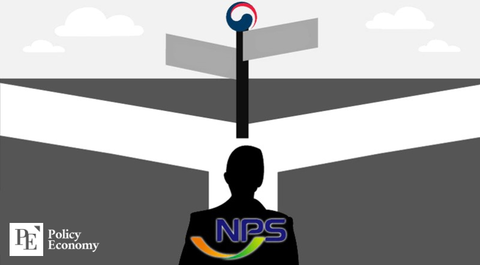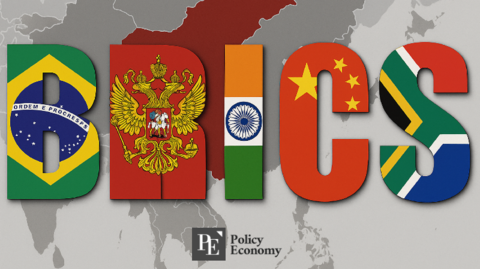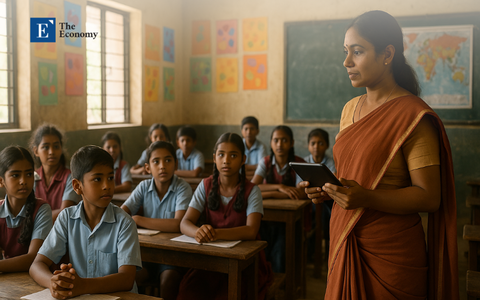입력
수정
[동아시아포럼]은 EAST ASIA FORUM에서 전하는 동아시아 정책 동향을 담았습니다. EAST ASIA FORUM은 오스트레일리아 국립대학교(Australia National University)의 크로퍼드 공공정책 학교(Crawford School of Public Policy) 산하의 공공정책과 관련된 정치, 경제, 비즈니스, 법률, 안보, 국제관계 및 사회에 대한 분석 및 연구를 위한 플랫폼입니다.
저희 폴리시코리아(The Policy Korea)와 영어 원문 공개 조건으로 콘텐츠 제휴가 진행 중입니다.

엘레나 콜린슨은 시드니공과대학교 호주-중국관계연구소(UTS:ACRI)의 연구 분석 담당 연구원입니다. UTS:ACRI의 논평 시리즈인 Perspectives의 편집자이자 내셔널 인터레스트, 시드니 모닝 헤럴드, 가디언, 사우스 차이나 모닝 포스트, 디플로맷, 더 컨버세이션, 호주 외교, 로위 연구소의 인터프리터 , 호주 국제문제연구소의 호주 전망, 외교관계위원회의 아시아 언바운드 등 다양한 매체에 기고한 바 있으며, 편집된 책에 챕터를 기고하기도 했습니다. 뉴사우스웨일스 주 변호사 자격을 취득했으며, 호주 연방 정부 부처, 장관급, 상원 사무실에서 연구 및 프로젝트 관련 직책을 역임했습니다.
호주 인문학 아카데미(Australian Academy of the Humanities)는 지난 2017년부터 가속화된 중국-호주 관계 경색이 호주 국민들의 생활에 얼마나 깊숙이 스며들어 있는지 분석한 ‘호주 대학의 중국 지식 역량’ 보고서를 내놨다. 중국의 고속 성장에 따른 노골적인 '민낯'이 가시화 됨에 따라 호주의 지식인 계층은 중국의 영향력 확대가 호주의 국가적 안보와 번영을 위협하고 있다고 지적해 왔다.

지난해 호주-중국 관계 연구소(Australian-China Relations Institute)와 시드니 공과대학(University of Technology Sydney)의 비즈니스 인텔리전스 및 데이터 분석 센터(Center for Business Intelligence & Data Analytics)가 시행한 여론 조사를 살펴보면 호주 국민들은 시진핑 주석 치하의 중국을 점점 더 부정적으로 바라보는 추세가 뚜렷하게 나타난다.
스콧 모리슨(Scott Morrison) 전 총리가 코로나 발생처를 중국으로 지적하자, 중국은 호주에 200%의 '관세 폭탄'으로 보복했다. 이어 호주와의 고위급 정치적 접촉을 중단하면서 호주-중국간 관계 악화가 정치·경제적 조치로 확장되었고, 호주 국민들의 일상에도 큰 영향을 끼치고 있다. 관세 보복 조치는 완화에 맞물려, 앤서니 앨버니지(Anthony Albanese) 현 호주 총리는 대(對)중 유화책을 꺼내들기도 했다. 그러나 외교가에서는 양국 관계가 잠시 안정기에 돌입했을 뿐, 중장기적으로는 점차 악화될 것이라는 전망이다.
호주 인문학 아카데미의 보고서에 따르면 호주에서 확산되고 있는 ‘반중 정서’가 호주 대학가의 중국 연구 기조를 바꿔 놓았다. 특히 젊은 연구자들은 중국의 본질을 이해할 수 있는 중국의 언어, 역사, 문화 및 정체성보다 중국과의 국제 관계 및 안보에 주목하기 시작했다. 중국의 위협이 거세지는 가운데, 스스로를 아시아 국가로 정의하는 호주에게 아시아 지역 연구 역량 쇠퇴는 상당히 치명적으로 작용할 수 있다.
피터 배르게시(Peter Varghese) 전 호주 외교통상부 장관과 조셉 로 비안코(Joseph Lo Bianco) 언어 연구원은 “지역 자체가 변화하고 전략적 관계가 재정립 되는데다 경제 구조가 변하는 시기”에 설상가상으로 “(호주의) 아시아 전문성마저 쇠퇴하고 있는 상황”이라고 우려를 표명했다.
불확실한 호주의 지역 정체성
호주에서 아시아 언어 교육에 대한 관심과 투자가 감소하는 문제는 어제오늘 일이 아니다. 이는 호주의 지역 정체성을 정의하고 아시아 대륙 내에서의 자국의 위상을 찾으려는 호주의 지속적인 노력에 깊이 뿌리를 두고 있다. 또한 이는 호주 스스로 아시아에 관한 지식 부족을 인식하고 이를 해결하기 위해 노력하는 하나의 순환으로, 주기적으로 반복되는 패턴으로 보인다.
1960년대는 호주의 아시아 참여에 있어 중요한 전환점이다. 두 가지 주요 지정학적 사건이 호주의 지역적 역할과 정체성에 대한 재평가를 야기했다. 첫째, 호주의 전통적 동맹국이자 과거 식민지 강국이었던 영국이 동남아시아에서 철수하기 시작했다. 둘째, 호주의 또 다른 주요 동맹국이었던 미국이 아시아에서의 역할을 재조정했다. 이러한 지정학적 환경의 변화로 인해 미국과 호주 양국은 이전과는 다른 방식으로 아시아에서 호주의 입지를 재평가해야 했다.
호주 내무부 장관을 역임한 피터 닉슨은 지정학적 변화와 불확실성의 시기에 "지정학적 관점뿐만 아니라 언어, 문화, 역사 측면에서 아시아를 이해하는 것이 중요하다"고 강변했다. 닉슨은 “지금은 우리가 장미 전쟁이나 고대 유럽에서 일어난 비슷한 사건을 과거에 묻어야 할 때”라고 선언하며 훨씬 더 단호한 태도를 보였다. 그는 호주인들이 라틴어, 그리스어, 프랑스어를 “배 밖에 던져버리고” 일본어, 중국어, 말레이어를 배우기 시작해야 한다고 첨언했다.
호주 교육과정 속 아시아
1980년대에는 어땠을까. 1989년 발간된 ‘호주 고등 교육에서의 아시아에 관한 잉글슨 보고서(The Ingleson report on Asia in Australian Higher Education)’ 역시 호주인들이 아시아의 언어를 배워야 한다고 강조한다. 해당 보고서는 호주가 지정학적 요소, 무역, 투자 그리고 이민을 통해 아시아의 ‘다른 나라와 다른 방식으로’ 연결되어 있다고 주장했는데, 이는 1970년대 이후 호주를 뒤덮은 변화에 대한 가장 극적인 주장이었다. 보고서는 호주인들이 ‘아시아 일부가 되는 미래를 관리하려면’ 아시아 언어와 문화에 대한 폭넓은 지식이 필요하다고도 이야기했다.
하지만 잉글슨 보고서의 백미는 아시아 교육이 ‘호주화’ 커리큘럼의 일부라고 주장한 대목이다. 이는 대학의 인문학 및 사회과학 과정을 급격히 변화시켰는데, 밥 호크(Bob Hawke) 전 호주 총리는 이 주장을 받아들여 초등 및 중등학교에서의 아시아 언어 교육을 의무화했다.
가장 최근에 일어난 변화는 케빈 러드(Kevin Rudd) 전 호주 총리와 줄리아 길라드(Julia Gillard) 전 호주 총리가 주도했다. 러드 정부는 2020년까지 고등학교에서의 아시아 언어 및 문화 학습에 자금을 지원해 중국어, 인도네시아어, 일본어 또는 한국어에 능통한 학생 수를 두 배로 늘리는 프로그램을 도입했고, 길라드 정부는 호주의 모든 학생에게 아시아 언어, 특히 중국어, 일본어, 인도네시아어 또는 힌디어를 배우고 아시아 문화를 공부하는 기회를 주겠다는 정책 목표를 내세웠다.
말레이시아인 아버지와 호주인 어머니 사이에서 태어난 페니 웡(Penny Wong) 현 호주 외무장관은 새로운 호주 정부가 같은 지역 이웃에 더 친밀하게 다가가려 한다는 점을 강조하고자 직접 인도네시아어 메시지를 녹음해 공개할 만큼 호주의 ‘완전한 정체성’을 태평양과 동남아시아에서 찾는 것을 진지하게 고려하고 있다.
이제는 ‘아시아 문해력’을 위한 지속적인 국가 프로그램이 필요한 시점이다. 한때 뉴사우스웨일즈 대학(University of New South Wales)에 있었던 호주-아시아 연구소(Australia–Asia Institute)의 재활성화도 고려할 필요가 있다. 이 연구소의 설립자이자 전 주중 호주대사인 스티븐 피츠제럴드(Stephen FitzGerald)는 연구소를 ‘아이디어 배양과 관계 구축을 위한 호주 및 아시아 국가 간 고위급 대화’를 주최하고 ‘호주 및 아시아 지도자들이 견해를 제시하고 아시아의 미래를 주제로 토론하는 장’으로 만들고 싶었다고 설명했다. 또한 대학은 아시아 지역의 언어, 번역 그리고 사회 교육 간의 연결 고리를 재구축할 필요가 있다.
과연 호주가 앞으로도 쭉 국가 안보 기관의 조언에만 의존해 대중 정책을 수립할 수 있을까. 국가를 하나의 고정된 대상으로 생각하면 안 된다. 국가는 하나의 유기체로서 중국 역시 예측할 수 없는 방향으로 변할 것이다. 향후 호주의 대응에 귀추가 주목된다.
Australia’s narrow understanding of China is of its own making
The Australian Academy of the Humanities’ 2023 report into the knowledge capability of Australia’s universities concerning China has brought into sharp relief just how far a fraught relationship with China is permeating national life.
Since at least 2017, the rhetoric of Australian political leaders and prominent media commentators has emphasised that Australia faces an existential threat to its security and prosperity from a rising and more assertive China. Public opinion polls now consistently show deepening negative views of Chinese President Xi Jinping’s China.
The most obvious effect of this relationship breakdown was Beijing’s freezing of high-level political contact and its ultimately counterproductive imposition of tariffs on key Australian exports. Those restrictions are now being eased and Australian Prime Minister Anthony Albanese’s government has stopped the shouting of its predecessor. Still, there remains little realistic hope that the bilateral relationship can advance much beyond stabilisation in the near to medium term.
But a light has now been shone on how Australia’s China debate is affecting the kinds of choices being made by — and provided to — younger Australians about the study of China at Australian universities. In short, the report shows a clear shift away from the study of language, history, culture and identity to a heavy focus on international relations and security.
This gradual ebbing of Asian expertise accompanying the rising tide of a China threat narrative is of deep concern to Australia which remains ever-keen to define itself as belonging to Asia.
As former Department of Foreign Affairs and Trade secretary Peter Varghese and language studies expert Joseph Lo Bianco argued, ‘the evidence shows us that Asian expertise is slipping at the worst time: when the region itself is changing, strategic relationships are re-aligning and economic models are shifting’.
The drop-off in the teaching of Asian languages is not a new phenomenon. Indeed, it taps deeper roots in Australia’s ongoing search for markers of regional belonging. Australia appears to periodically discover its Asian knowledge deficit.
In the 1960s, the United Kingdom’s departure from Southeast Asia and the recalibration of the United States’ role in the region forced both sides of politics to come to terms with Australia’s place in Asia as never before. Former minister for education Malcolm Fraser argued for more Asian studies in Australian schools.
Around the same time, former minister for the interior Peter Nixon was much more emphatic in declaring that ‘now is the time for us to place the war of the roses and similar ancient European events amongst the curios of bygone days’. Nixon said Australians needed to ‘throw overboard’ Latin, Greek and French and start learning Japanese, Chinese and Malay.
In the 1980s, the Ingleson report on Asia in Australian Higher Education (1989) gave the impetus for Australians to pick up unfamiliar dictionaries its fullest treatment. The report advanced the most dramatic claims for the changes which had overtaken Australia since the 1970s, stating that Australia was linked to Asia through geopolitics, trade, investment and immigration ‘in a way different from any other country’. Because of this, if Australians were ‘to manage their future as part of the Asian region’, Australia would need to have widespread knowledge of Asian languages and cultures.
But the Ingleson report’s grandest assertion, leading up to proposals for radical changes in university humanities and social science course structures, was that teaching about Asia was part of the ‘Australianisation’ of the curricula. Former prime minister Bob Hawke’s government took heed of the recommendations and made the teaching of an Asian language compulsory in primary and secondary schools.
The governments of former prime ministers Kevin Rudd and Julia Gillard added the most recent chapter to this story. The Rudd government introduced a program to fund high school Asian language and culture studies and double the number of students exiting school with fluency in Chinese, Indonesian, Japanese or Korean by 2020. The Gillard government outlined a policy objective that every student in Australia be given the opportunity to learn an Asian language — particularly Chinese, Japanese, Indonesian or Hindi — and study Asian culture.
There is space for the Albanese government to emphasise the urgency of Australia’s Asian expertise deficit too.
After all, Foreign Minister Penny Wong is serious about projecting Australia’s ‘full identity’ to the Pacific and Southeast Asia. Wong has also been assiduous in recording messages in Indonesian to underline the greater intimacy of the new government’s approach to its regional neighbours.
That example now needs to flow through to a sustained national program for Asian literacy and perhaps even the re-energising of the Australia–Asia Institute, once housed at the University of New South Wales. The Institute was described by its founder, former Australian ambassador to China Stephen FitzGerald, as having sought to host ‘high-level dialogues with Asia to incubate ideas and build relationships’, and be ‘a vehicle for Australian and Asian leaders to amplify their views and debate our Asian future’. Universities also need to re-forge the link between language and translation and society teaching.
Australia cannot continue to shape future policy towards China reliant only on the advice of its national security agencies. It would be foolhardy to suggest that nations never change — China too will change, perhaps in unpredictable ways. The question is whether Australia mortgages its image of China to the present or starts learning to be more adaptable and agile in the event that circumstances change.













